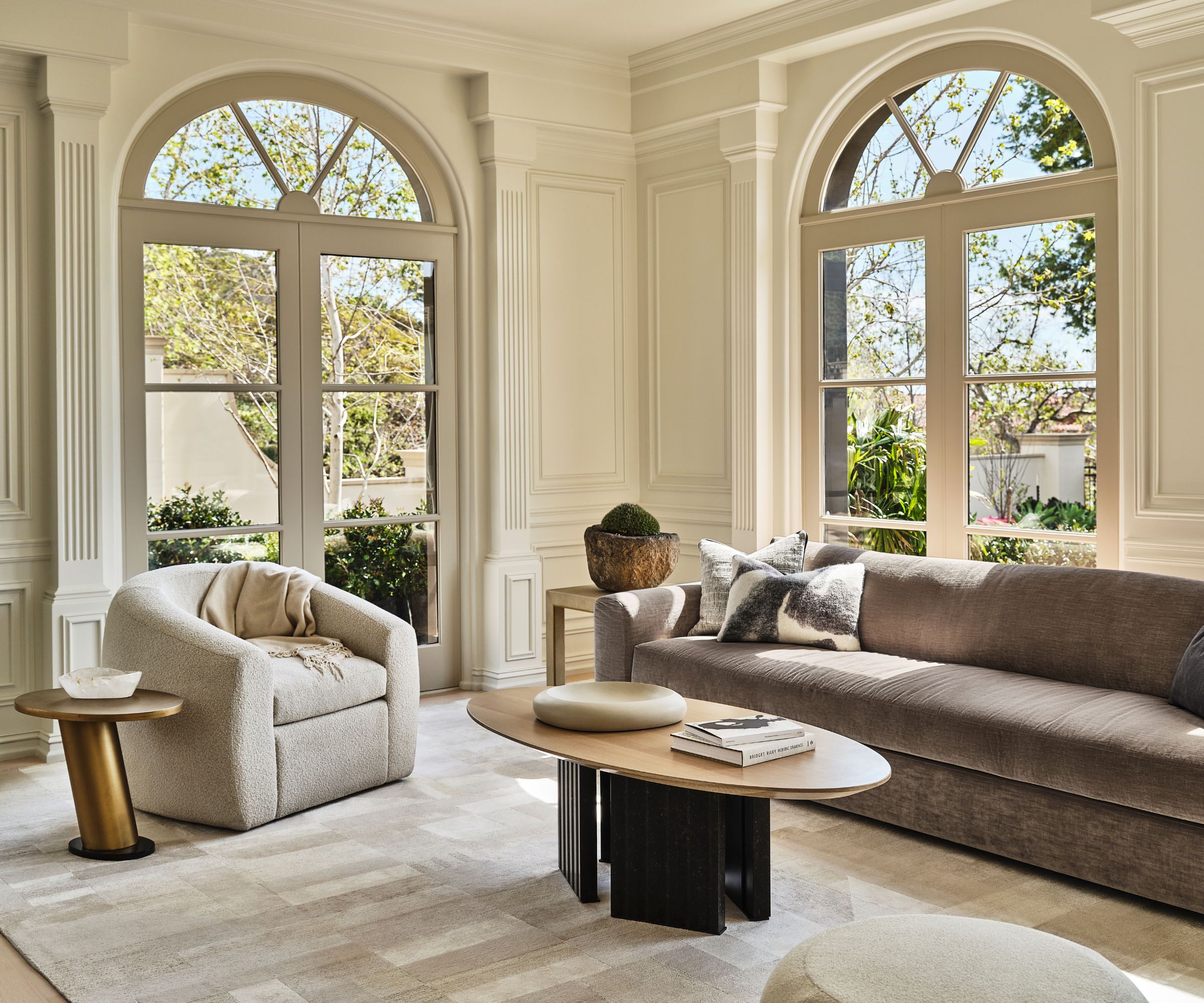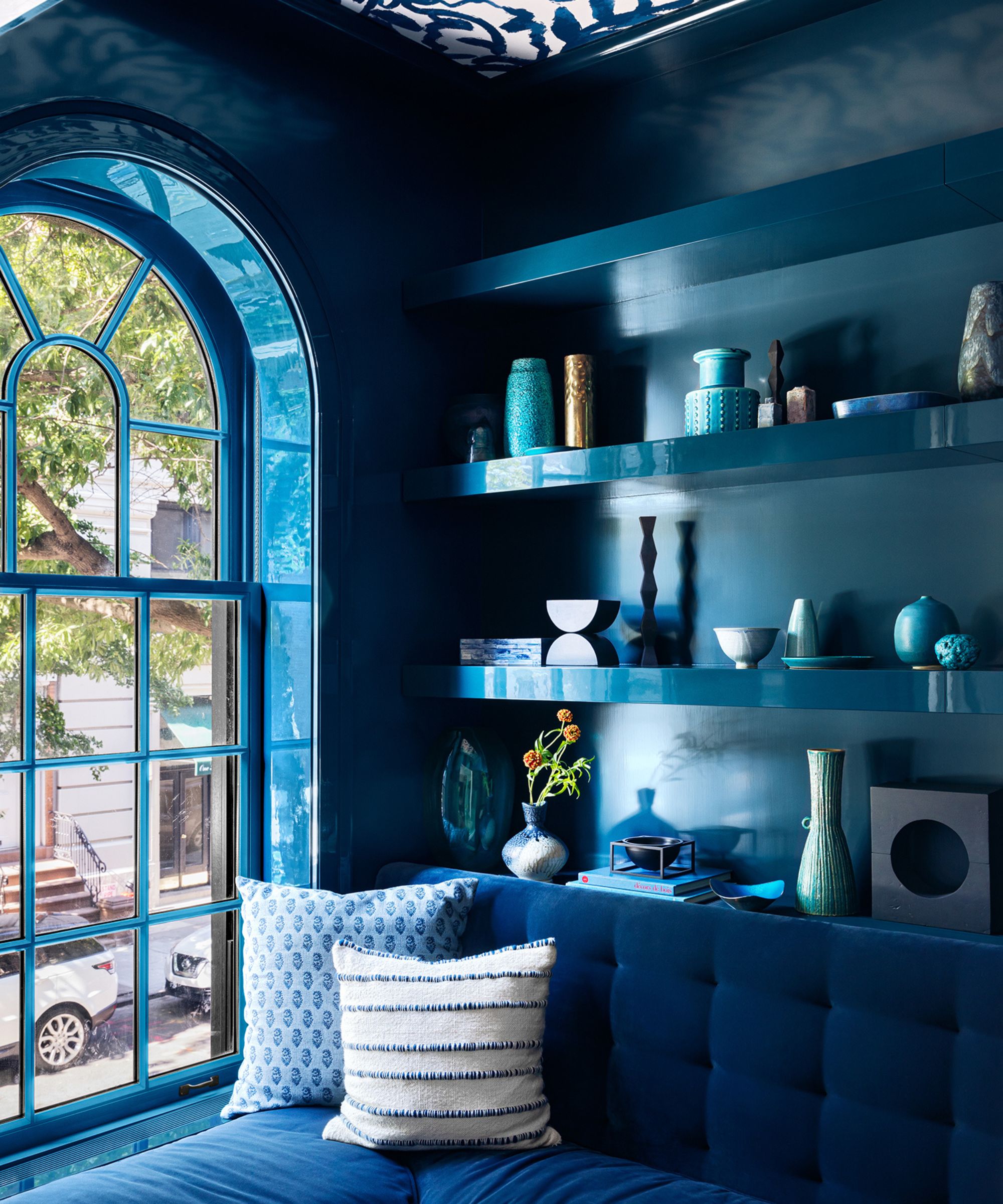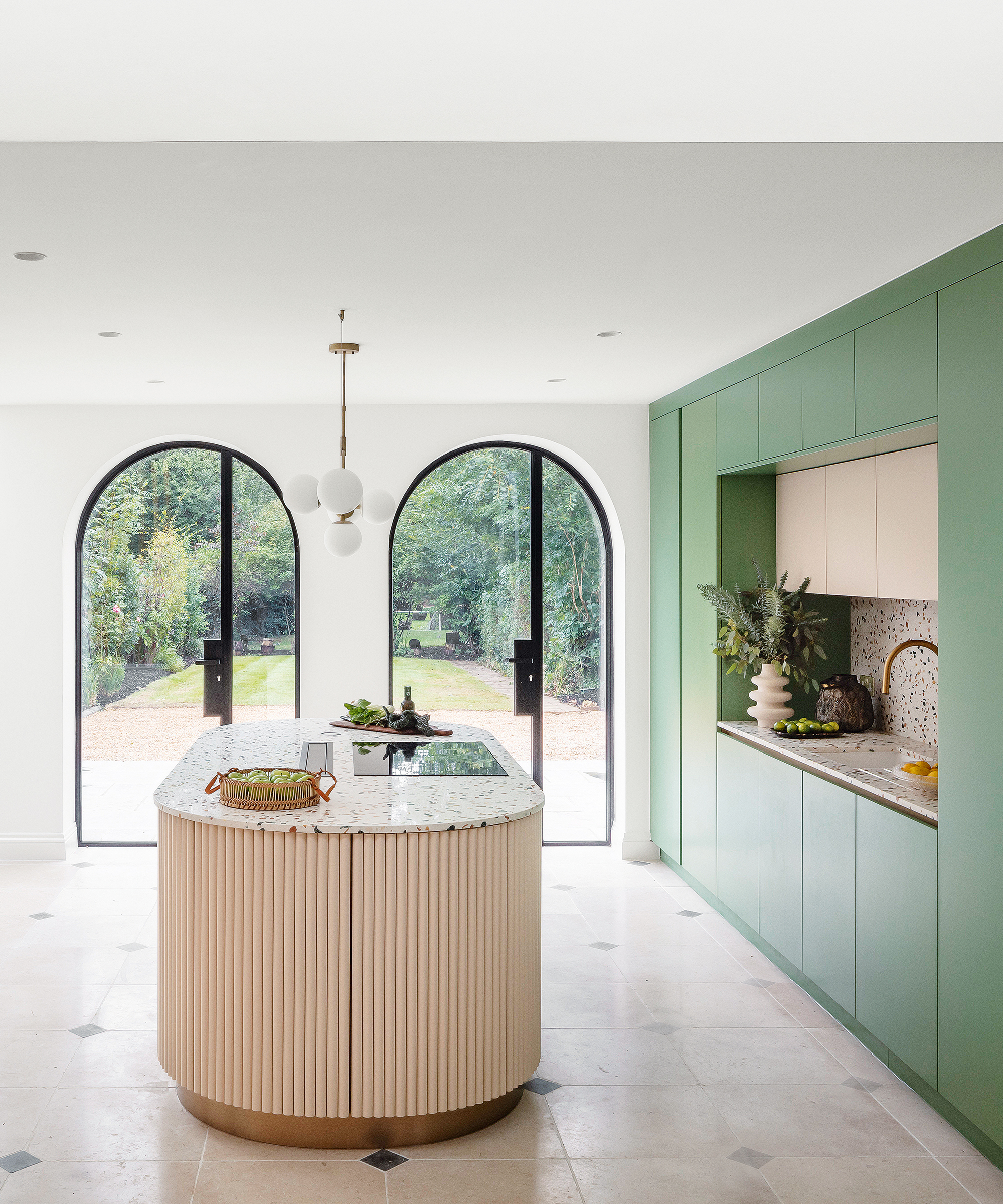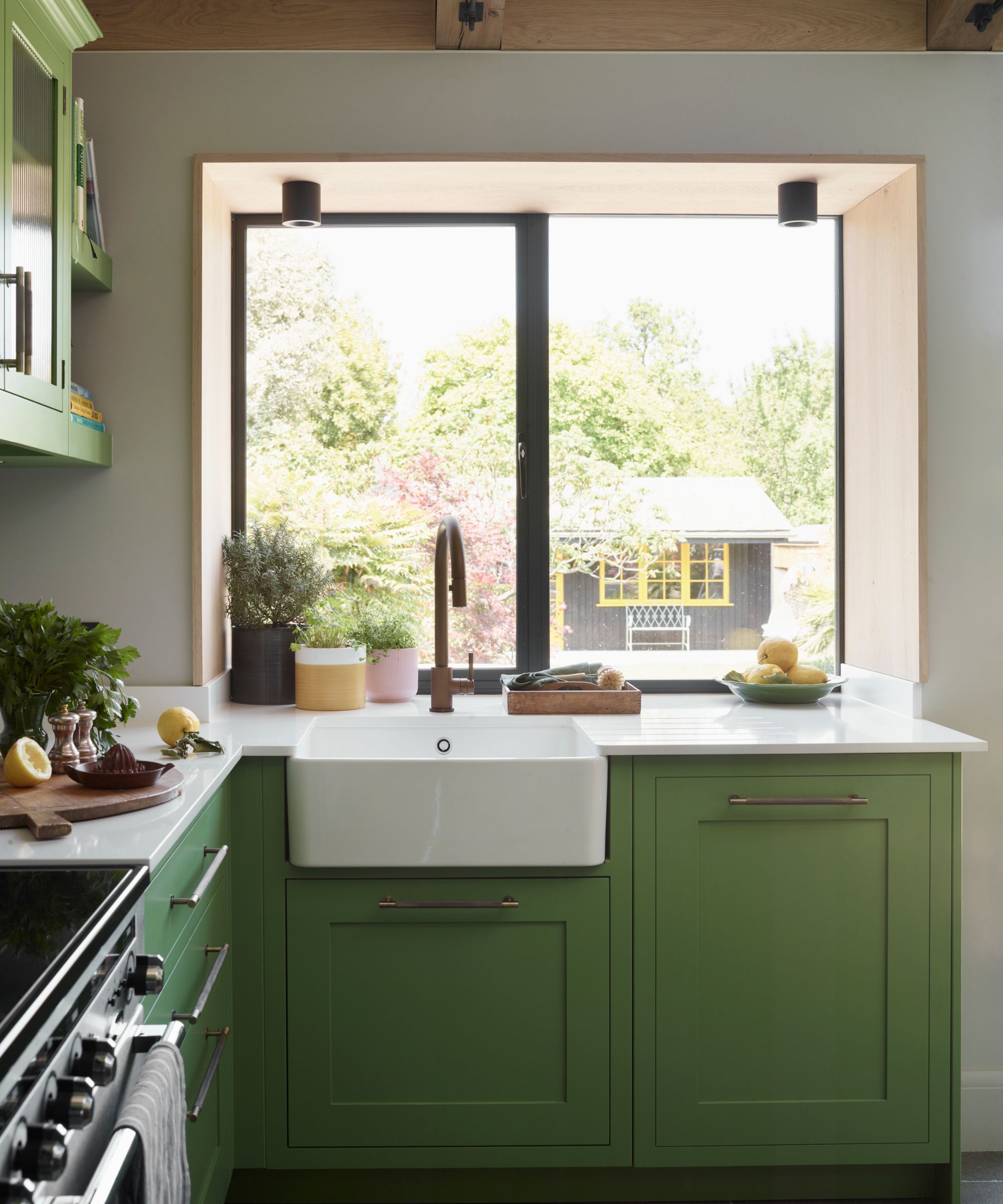How to soundproof windows without replacing them – 6 expert-recommended ideas
Don't let noise pollution disturb your peace – soundproof your windows with a combination of these methods


Design expertise in your inbox – from inspiring decorating ideas and beautiful celebrity homes to practical gardening advice and shopping round-ups.
You are now subscribed
Your newsletter sign-up was successful
Want to add more newsletters?

Twice a week
Homes&Gardens
The ultimate interior design resource from the world's leading experts - discover inspiring decorating ideas, color scheming know-how, garden inspiration and shopping expertise.

Once a week
In The Loop from Next In Design
Members of the Next in Design Circle will receive In the Loop, our weekly email filled with trade news, names to know and spotlight moments. Together we’re building a brighter design future.

Twice a week
Cucina
Whether you’re passionate about hosting exquisite dinners, experimenting with culinary trends, or perfecting your kitchen's design with timeless elegance and innovative functionality, this newsletter is here to inspire
Windows are likely the area that produces the most sound transmission in your home, so soundproofing your windows is an important job to ensure your space remains tranquil. However, replacing and upgrading your windows can be a costly venture. Luckily there are a few ways to improve soundproofing on your windows, without breaking the bank.
These hacks are low-cost and easy to install yourself, so can be a quick fix if you need to urgently soundproof a room.
From making sure windows are completely sealed, to adding window treatments to dampen sounds, these expert-recommended methods can help you to soundproof your windows without replacing them. Although they cannot completely soundproof your windows, they can significantly improve the sound insulation of your existing windows.
How to soundproof windows without replacing them
'Windows are the biggest transmission point in a wall, and they can make a considerable difference in noise reduction. Soundproofed windows reduce noise pollution by causing the sound wave to lose power, which is achieved by using materials that absorb and reflect sound,' explains Zlatka Dimitrova at Fantastic
Services.
1. Seal gaps and cracks

'An effective way to soundproof your windows is by sealing any gaps or cracks around the frame,' says Zach Shelley, founder and CEO of A-List Properties. 'These small openings can let in a significant amount of noise, especially if your windows are old or poorly installed.
'To seal these gaps, use a high-quality acoustic caulk, [such as this Auralex StopGap acoustical sealant, from Walmart], or weatherstripping tape. Apply it along the edges and corners of your window frames to create an airtight seal. You can also add weatherstripping foam tape to the bottom of your window frame to block any noise coming through the gap between your window and its sill.'
2. Use soundproof window dressings

'An easy way to soundproof your windows without replacing them is by using soundproof curtains or drapes,' says Zach Shelley. 'These specially designed curtains are made with multiple layers of fabric and sound-absorbing materials such as mass-loaded vinyl (MLV) or fiberglass insulation. They can significantly reduce the amount of outside noise entering your room.
'To install the curtains, simply hang them over your windows using a curtain rod. Ensure that they cover the entire window frame and extend below it to create a seal. You can also add additional layers of soundproofing materials between the curtains and the window for even better noise reduction.' You can find soundproof curtains, on Amazon.
Additionally, Zlatka Dimitrova recommends, 'Shutters are another great way to reduce the amount of noise in a room. Solid wooden shutters can considerably cut out traffic noise.
Design expertise in your inbox – from inspiring decorating ideas and beautiful celebrity homes to practical gardening advice and shopping round-ups.
'Alternatively, for an enhanced noise reduction, use both curtains and blinds combined.'
3. Apply soundproof window film

One of the best ways to soundproof your windows is by using a soundproofing window film. This adhesive film can be applied directly to your existing windows, significantly reducing incoming noise.
'Soundproof window film is a thin sheet of plastic that can be applied directly onto your window glass. It works by dampening sound waves and reducing their intensity, making it an effective way to soundproof windows without replacing them,' explains Zach Shelley.
'The film is easy to trim to size, only takes minutes to apply, and is easy to remove,' says Zlatka Dimitrova.
'To apply, simply cut the film to fit your window size and stick it onto the glass using a water-based adhesive,' continues Zach Shelley. 'Make sure to smooth out any air bubbles for optimal performance.'
You can find this window film at Walmart.
Additionally, 'Choose multi-layer films for enhanced noise blocking capabilities,' recommends Yama Jason, founder of Parlun Building. 'There are multiple sources of noise, and it is recommended to use multiple methods at the same time to achieve the best sound insulation effect.'
'While this option is not as effective as other methods, it can still provide a noticeable reduction in noise levels.'
4. Invest in made-to-measure window inserts

'Consider a clear acrylic panel fitted to your window frame – it creates an extra barrier for sound without the need for structural changes,' explains Alexander Havkin at Ecoline Windows.
'While these methods won't replicate the soundproofing quality of specialized windows, they can significantly reduce noise intrusion, improving your living or work space's tranquility without a major renovation.'
'Made-to-measure window inserts create a secondary glazing effect by using a custom-fit plastic frame that sits inside the window sills,' advises Zlatka Dimitrova. 'However, keep in mind that their degree of quality varies, and some can look quite cheap.'
5. Use a carbon panel

'Another high-tech DIY sound barrier you can use on your windows is a carbon panel,' says Zlatka Dimitrova. 'Carbon panels are perfect for absorbing low-frequency sounds like thunder or machinery that's being operated on a nearby industrial site.
'A carbon panel can be placed over your window to dampen unwanted noise and also block out light. The difference is that a carbon panel is a higher-quality material, so you’ll notice better soundproofing results.'
However, this option should only be used in cases where soundproofing is more essential than using the windows since these are black-out.
6. Apply foam insulation
Like using caulk to seal cracks, 'Injecting spray foam insulation into the window frame cavity can seal cracks and improve sound insulation,' says Yama Jason.
We recommend using expanding foam spray to ensure no areas remain open, allowing the transmission of sound, such as this insulating foam, from Walmart.
FAQs
What are window plugs?
'Window plugs are a temporary soundproofing solution that can be easily removed when not needed,' explains Zach Shelley, founder and CEO of A-List Properties. 'They are made with dense materials such as foam or fiberglass insulation and can be custom-made to fit your window frames.
'To install, simply place the plugs into your windowsill or frame, creating a tight seal. This will block out most of the noise coming from outside, making your room much quieter.'
Remember that while these methods can help reduce noise, they may not provide the same level of soundproofing as replacing the windows with double-glazed, soundproof ones. However, they can significantly improve the sound insulation of your existing windows.
If you're looking for a temporary soundproofing solution, you can hang soundproof blankets or acoustic panels over your windows. These can be easily removed when they are not needed.

Lola Houlton is a news writer for Homes & Gardens. She has been writing content for Future PLC for the past six years, in particular Homes & Gardens, Real Homes and GardeningEtc. She writes on a broad range of subjects, including practical household advice, recipe articles, and product reviews, working closely with experts in their fields to cover everything from heating to home organization through to house plants. Lola is a graduate, who completed her degree in Psychology at the University of Sussex. She has also spent some time working at the BBC.